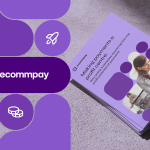
Collaboration Seen as Essential in Combating Identity Fraud, but the UK Trails Behind Europe
In a survey of over 400 businesses in the UK and Europe, GBG’s Global Fraud Report reveals their strategies for combating fraud.
- Cross-sector collaboration and intelligence sharing is key to beating fraudsters, according to 81% of European businesses.
- 64% of UK businesses are part of an identity intelligence consortium, compared with 85% in Germany, showing UK businesses are lagging their European counterparts when it comes to intelligence sharing.
25 June 2024, London UK: New research from GBG, the leading expert in global identity and location, has revealed 81% of European businesses believe cross-sector collaboration and intelligence sharing is key to stemming the rising tide of fraudulent criminal activity. The findings are part of GBG’s new Global Fraud Report 2024 which surveyed businesses in the UK, France, Germany, and Spain in financial services, fintech, crypto, banking, retail and gaming to gauge levels and types of fraud, how this is impacting businesses and how they are responding.
How does collaboration work? And where is it happening?
When it comes to intelligence sharing and collaboration, businesses are already taking action. Over two thirds (70%) of European businesses are currently part of an identity intelligence consortium, which connect transactions taking place around the world and share international consumer intelligence between businesses, across sectors and national borders.
Of those who are not part of an identity intelligence consortium, over a quarter (27%) believe they should join one.
Is the UK falling behind?
UK businesses, however, seem to be lagging their European counterparts when it comes to intelligence sharing. Only 64% of UK businesses are part of an identity intelligence consortium compared with 82% in France, 85% in Germany and 74% in Spain. This is despite the fact that appetite for collaboration in the UK is strong with a third of UK businesses who are not currently a member of such a consortium saying they think they should join one. Only 3% of UK respondents said they do not think they should join.
Laura Barrowcliff, Global Head of GBG Trust, GBG, said: “It is encouraging to see large numbers of European businesses already benefiting from cross-sector collaboration, although it is somewhat concerning that some businesses are slower to act. Fraudsters operate across huge and growing digital ecosystems and, for businesses, there is a huge value to sharing across borders and sectors to stop them in their tracks.”
Barriers to collaboration
Three quarters (75%) of businesses surveyed believe organisations are too worried about maintaining a competitive advantage to participate in collaboration to combat fraud. 80% believe global governments are not doing enough to support cross-sector collaboration. This is despite the fact that 31% of businesses say it’s extremely difficult to identify fraudsters at the point of onboarding.
Laura Barrowcliff continues: “Sharing consumer intelligence to combat fraud does not mean a business will lose its competitive advantage – this is a myth that needs to be busted and fast. Businesses do not share raw data within consortia, but anonymised patterns and insights on confirmed or suspicious fraud. This has a huge benefit for all businesses – regardless of sector. Afterall, criminals don’t limit fraud attacks to one business, industry or stop at national boundaries either.
If businesses are not part of such a group, they risk losing out because they will not benefit from the early insights that can pre-empt crime detection and stop fraudsters before ever entering a business. Alarmingly a third (31%) of businesses say it’s extremely difficult to identify fraudsters at the point of onboarding – it’s critical this is reduced.”
Increasing fraud levels
GBG’s report is published against a backdrop of rising fraud, with 82% of businesses surveyed admitting they have experienced known or suspected fraud in the past 12 months. Over half (55%) also revealed fraud attempts had increased compared to the previous year. Over three quarters (78%) said there had been a significant increase in sophistication of fraud attempts over the past year. With that said, 67% of respondents believe that opportunistic and convenient fraud is more of a threat to their businesses than sophisticated fraud, which is of greatest concern to 32%.
Burnout is common for those fighting fraud
Three quarters (75%) of those working in risk, fraud or compliance said they had experienced burnout in their job due to rising levels of fraud. Over one third said industry siloes was the issue that kept them up at night (35%) with 37% reporting they were kept awake at night by the shifting tactics used by fraudsters and almost four in ten (39%) are most concerned about lack of regulations or controls to prevent fraud.
Laura Barrowcliff concludes: “Shared consumer intelligence is a powerful trust-building tool that creates a safer environment and online experiences for both businesses and consumers. It is heartening to see businesses are embracing this as it keeps them, and their users protected from fraud and financial loss. It would also help the high numbers of industry professionals reporting burnout as a result of high levels of fraud. Those businesses who are not collaborating now should do so swiftly or risk losing out.”
For more findings, and to download the full Global Fraud Report, please visit: https://www.gbgplc.com/the-global-fraud-report-2024/












